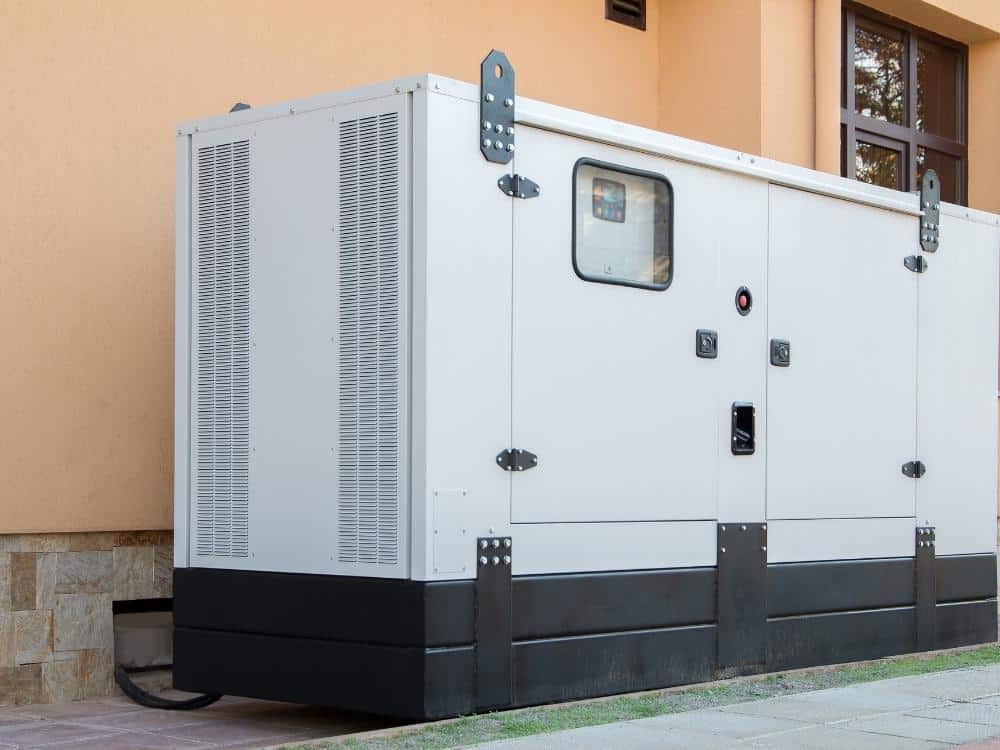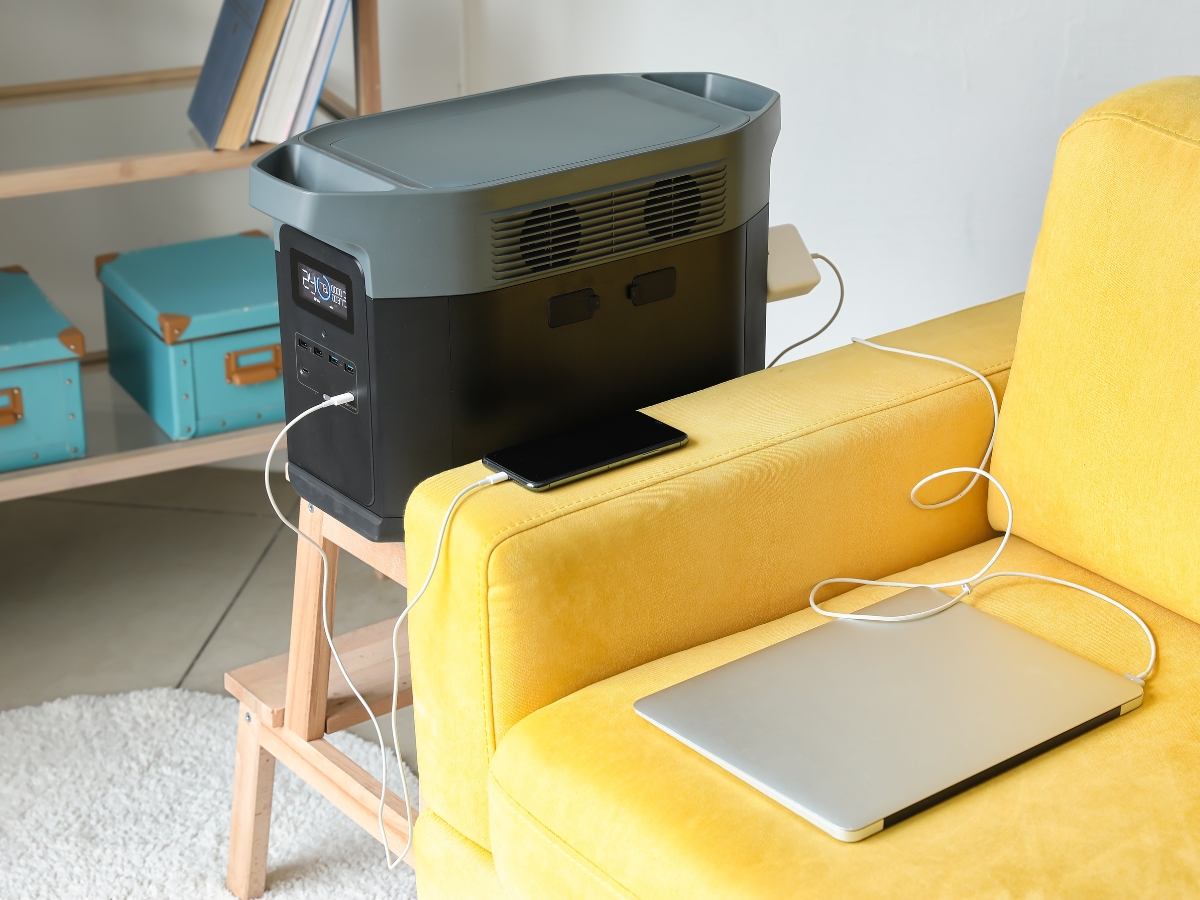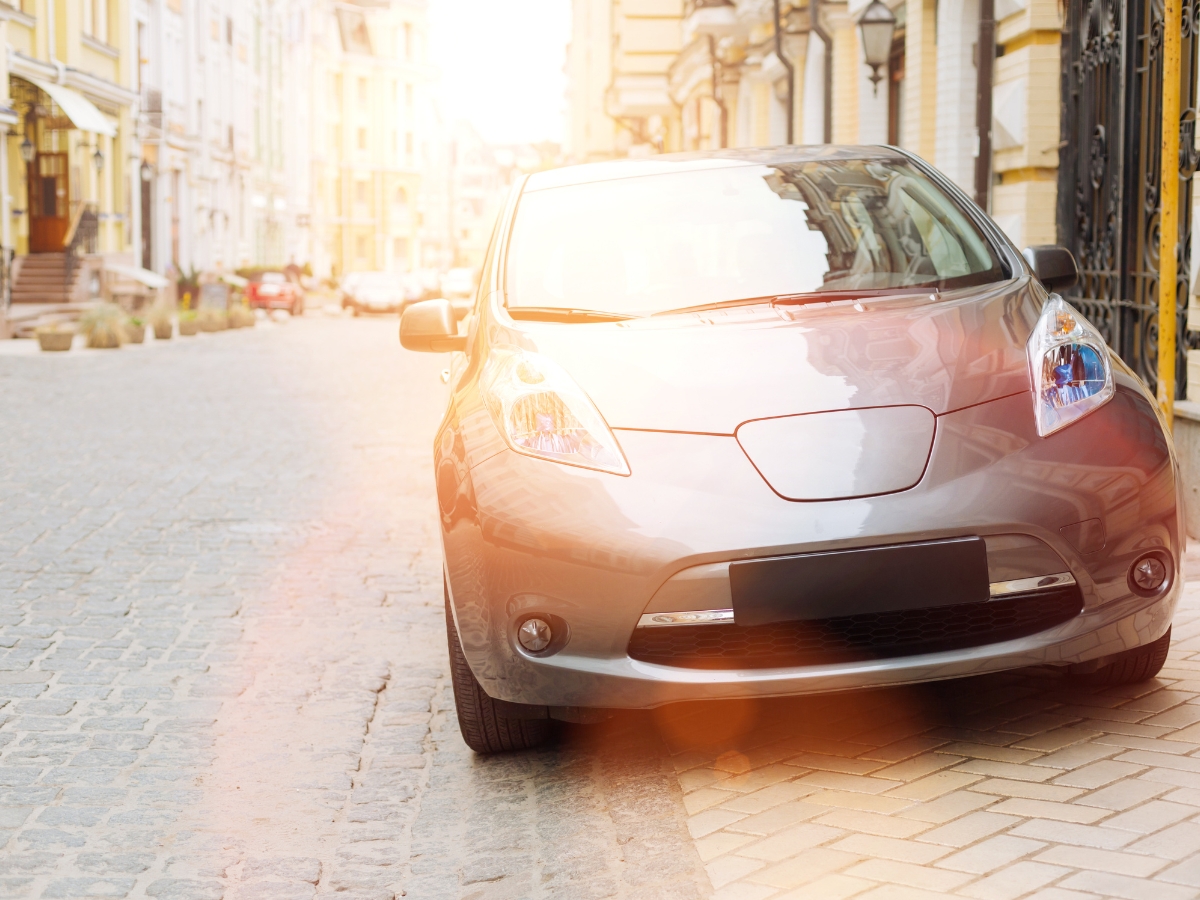Generators convert fuel into electricity, and their benefits are immense. Some are portable, others are automatic, and others produce “clean” electricity. When power outages occur for whatever reason, a way to not be left in the dark is by purchasing a generator; but should you buy a generator for emergencies only?
Generators are convenient devices for when the power goes out. Below we explore whether or not generators are that essential by looking at:
- Are generators worth purchasing for emergencies, and what type?
- What are some benefits and drawbacks to generators?
- When are generators non-negotiable?
Generators come in various designs, capacities, and capabilities for various purposes. A generator is often an immensely valuable piece of equipment, but are they worth the cost for emergencies only, and in what specific emergencies would a generator benefit you?

Is It Worth Buying An Emergency/Backup Generator?
Whether it is worth purchasing a generator for emergencies or not depends entirely on what the emergency is and what you need to achieve during the said emergency.
Generators are useful tools that can enhance our lives when the power goes out, and in some situations, generators are the primary source of power (electricity) for households/businesses.
In most emergencies, having any “lifeline” to grab onto is a godsend. In many cases, this “lifeline” is a generator. As fossil fuels are depleted and pressure increases on traditional power sources, a few options are available.
Unfortunately, “green energy” is still early in its development and efficiency. A generator is an alternative to installing a backup solar system to supply electricity when otherwise unavailable.
During emergencies, stress is high, panic is imminent, and helplessness is a feeling most people experience.
A generator can provide you with the means to take a small bit of control back from the chaos of the situation, and by doing so, provide you with a degree of peace of mind.
What Are The Benefits Of A Generator?
When you have no access to the grid (conventional energy supply), and power failures/cuts are frequent ( due to broken infrastructure, maintenance, repairs, generation issues, etc.), a generator is a convenient electricity source.
Generators are manufactured in various sizes (their power output) for various functions.
Some examples of the types of generators include:
- Inverter generators provide a “clean” source of electricity. These generators work through three phases, first converting fuel into AC (alternating current) which charges a battery.
The transformed DC (direct current) moves from the battery to an inverter, where it is converted into AC with a consistent voltage.
These generators are ideal for sensitive electronics, such as computers or medical equipment.
- Standby generators are excellent for power outages. These generators are designed to automatically switch on when the power goes out (usually within 30 seconds of an outage).
These generators are generally large and have high power output to run most, or all, of a house when the power goes out.
- As the name suggests, portable generators are of a size and design that allows (relatively) easy generator transportation. These generators are ideal for camping or working in the field (for those who live on farms) as they are mobile.
These generators are usually not intended to supply an entire house’s power requirements but rather a few smaller items, like a camping fridge. All three have a range of outputs to suit as many needs as possible. Inverter and standby generators are usually large (powerful) enough to run an entire house while the power is down.
On the other hand, portable generators are generally much smaller (power output) and specifically designed to power smaller loads (fewer electronics, which do not have high energy requirements).
Generators are also constructed to utilize various fuels, and some are designed to take more than one type of fuel. The most common fuels used in powering generators include:
- Diesel
- Hydrogen
- Gasoline
- Natural gas
- Propane
- Solar
What Are Some Drawbacks Of Generators?
Although generators provide many benefits, they are not without some shortcomings. These drawbacks include cost, fuel consumption, pollution (air and noise), and maintenance.
- Cost. Generators are rather expensive, especially when moving from portable to standby and inverter designs.
Standby generators (with the capacity to power your house) cost roughly $7 000 and $12 000, while portable generators are between $500 and $2 000.
- Generators need regular maintenance to ensure their optimum functioning. By staying on top of maintenance, bigger issues are avoided. However, with wear and tear over time, components do break.
Once they’ve broken, they need to be fixed/replaced, so the generator works again.
- Overheating in smaller output generators that run for extended periods is another concern. During the process of producing electricity, heat is released as a by-product.
The longer and “harder” the generator works, the more heat is produced. If the design is not conducive to shedding heat effectively, this excess heat builds up and potentially damages the generator.
- Fuel consumption can be a major drawback and increase overall running costs. Plus, obtaining fuel may be challenging during crisis/bad weather situations, if not impossible, so if you don’t have a stockpile, you may run out.
- Pollution generated during the operation of a generator is another problem. As gasoline and other fuels burn, harmful gasses (carbon dioxide and monoxide) are released into the atmosphere. This release could pose serious health risks if in a confined space.
Additionally, most generators make a prominent, cacophonous noise during operation. If not dampened or set at a suitable distance, this noise becomes over-powering.
In What Emergencies Would A Generator Be Useful?
The term emergency can often be subjective. Depending on who you ask, you may have very interesting interpretations of the term. In this section, emergencies are related to life-threatening and potentially harmful situations.
1. Camping/Outdoors Emergencies
When camping and spending time in the great outdoors, many situations can go wrong quickly. In many of these situations, electricity could mean the difference between life and death.
This access to electricity includes something as simple as charging your cellphone’s battery to call for help if someone fell and hurt themselves.
We often take adequate lighting’s importance for granted until we don’t have it. With a portable generator, lights, fridges, and basic electronics are feasible.
Although it detracts from the beauty of nature, it could save a life in a crisis.
2. Natural Disasters
One of the greatest benefits of an emergency/backup generator is during a natural disaster or severe weather. When the grid loses power or power lines break, a generator will provide you with electricity.
Natural disasters are beyond our control. The best plan of action for mother nature venting is to be prepared.
By having a backup (often standby) generator, as soon as the power goes out, the generator takes over supplying electricity to either the entire house or to important components (fridges, freezers, medical supplies, etc.).
In particularly dire situations, you may need to go into storm shelters to escape the surmounting forces at work. An independent means to produce and supply electricity is vital in these instances.
Some examples of these forces of nature include:
- Hurricanes and tornadoes. In areas that experience frequent hurricanes or tornados, the power may be off frequently due to damaged power lines, transformers, and substations.
- Severe storm weather and flooding. These events are comparable to tornados and hurricanes; however, it also includes heavy rains, lightning strikes, and hail. These conditions interrupt the electricity supply or break its infrastructure.
The resulting power issues can last for days to weeks, where you may be stranded without electricity. In these instances, the ability to generate your electricity can make all the difference.
Many homes are equipped with a sump pump to remove water during flood situations. These pumps need electricity to operate, so a generator is essential.
- Earthquakes can cause vast amounts of damage to infrastructure, including electrical infrastructure, depending on their magnitude.
- Fires. As we have observed in recent years, fires are a force to be reckoned with. The amount of destruction they cause is truly catastrophic, burning houses, power plants, and power lines.
These include wildfires (burning through natural areas and destroying electrical infrastructure) and house fires.
3. Medical Emergencies And Standing Conditions
Not only is a generator practical in camping and natural disaster emergencies, but it can also save your bacon in medical emergencies or in situations where there is a pre-existing medical condition.
There are several situations where a constant electricity supply is paramount to ensuring a patient’s survival, both at home and in a hospital. People on life support, kidney dialysis, or any other medical condition which specialized electronics to keep the person alive/functioning cannot be without electricity for a long period.
A generator needs to switch on timeously when the power goes out to ensure these systems operate. If there is a medical situation, it is necessary to keep a backup generator.
These generators need to be sensitive enough to produce a consistent voltage and will often be inverter generators, but standby generators may also be used.
When the power goes out, the difference between life and death could lie in a backup generator.
4. The Onset Of War
Although a bit of an extreme example and probably not a reason you’d specifically buy a generator if a war breaks out and the country can no longer supply households with electricity, a generator would be vital.
So even though you would not specifically purchase a generator, for this reason, having a generator strong enough to supply your entire household would be beneficial.
As wars tend to drag on for longer than anticipated, it is unlikely to be restored timeously if the grid is lost early.
In What Other Situations Is A Generator Critical?
Emergencies are not the only situations where a backup generator is vital. Some home and business-related activities require continuous electricity, and for this reason, having a generator ensures continued functioning.
Prevalent weather conditions, your location, and other issues may necessitate a generator to keep your home, smallholding, or business operating when the power goes down.
Some important functions/activities which don’t necessarily constitute emergencies but which require an uninterrupted source of power include:
1. Running Cold Storage Like Freezers And Refrigerators
One of the worst-case scenarios about a power outage is that refrigerators, freezers, and other cold storage devices overheat when the electricity is cut for an extended period.
This overheating (especially during the warmer months) result in food and other items in the cooling unit spoiling, which equates to an expensive waste, and potentially a dangerous situation if medicine was in the cooler.
Generators allow the continued functioning of these devices, but you should ensure that the generator is powerful enough to run the load without incurring under-voltages.
2. Running Aquariums And Hatcheries
Many people enjoy keeping aquarium fish, while others raise fish or fowl as a subsistence food/small-scale enterprise.
In these and other examples, temperature control, oxygen regulation, pumps, fans, lights, and a plethora of other devices are critical to ensure the successful operation of these activities.
When the power goes out, you cannot control these factors, and the potential for losing animals (death) increases. A generator that is sufficiently sized allows the continued operation of these enterprises.
3. Areas Which Experience Frequent Power Outages
Most of us experience a power outage once in a while; however, certain areas (including California, Texas, New York, Ohio, Michigan) experience more frequent outages, and often for longer periods.
The main cause of these outages is due to severe weather. However, other factors like aging infrastructure, car accidents, and animal issues are credible causes.
The heat and cold play immeasurably important roles in damaging infrastructure, but the wind is also a major role player, blowing down trees, etc. A backup generator is a lifesaver in these places and should be on everyone’s emergency equipment list.
There is no power grid access or a very limited amount of power available to consumers in some areas. In situations like this, a backup generator is less important, and a generator as a primary source of power becomes far more valuable.
Due to its increased operating time, these generators would need to be bigger, both in fuel capacity and power output.
4. Maintaining And Updating Servers/Databases
If you work from home and constantly communicate with a server or database, having no electricity is less than ideal.
When you need to be online, a generator will provide you with consistent, relatively reliable power.
Is The Price Of A Generator Worth It Only For Emergency?
Whether it is cost-effective to purchase a generator for only emergency use or not depends on several factors:
- Your budget. If you have the money for it, I’d recommend purchasing a backup generator.
- Your lifestyle requirements. Do you keep fish/have an incubator, or need consistent power to operate? Then getting a generator for emergencies is a must.
- The area you live in. If your area experiences frequent, lengthy power outages, a generator is worth investing in. A generator is essential if you stay in an area that often experiences severe weather or storms.
- Medical conditions. A generator is non-negotiable if you need to power medical equipment.
If you can’t afford it and don’t need uninterrupted electricity, purchasing a generator solely for emergencies is probably unnecessary. If, however, you will get more use out of a generator than just emergencies, it is recommended to purchase one.
What Type Of Generator Works Best For Emergencies?
In most emergencies, a standby generator would be the optimum choice. Inverter generators are better when sensitive electronics are in effect, and a portable generator is ideal for powering fewer devices requiring lower wattages.
The type and output capacity of the generator you purchase depends greatly on your requirements, the area you live in (how frequent power outages are and how long they last), and your budget.
If you desire to run your entire house off a generator, you will need one between 5 000 and 7 500 watts. This wattage depends on what you plan to run, but a heating system alone usually uses around 5 000 watts, so bigger is better if you want to run anything else.
When deciding on what size generator to purchase, ask yourself these questions:
- What do I plan on running simultaneously, and what is the total required wattage?
- What is the greatest amount of wattage these items will use upon starting up (surge)?
- When added together, what is the total amount of watts required?
Once you answer these questions, you can reliably select a suitable generator.
Here are two generator backups we recommend – one for essential use and another for full-home backup power;
- With 12,000 watts of power, the XP12000EH Dual Fuel generator will keep your whole home running during a storm or power outage
- DuroMax is the industry leader in Dual Fuel portable generator technology, with a full assortment ranging from digital inverters to generators...
- At the core of all our products resides a robust DuroMax engine. Designed for Power. Designed to Last
- Remote Monitoring Anywhere: With Generac 7043 22kW Mobile Link Wi-Fi connectivity, effortlessly track generator performance from anywhere. Stay...
- Whole House Protection: Enjoy comprehensive coverage with Generac's 200 Amp NEMA 3R smart switch, designed for outdoor use with an aluminum...
- Long-Term Assurance: Backed by a 5-Year Limited Warranty, this automatic transfer switch delivers lasting performance and peace of mind, ensuring...
Depending on your home size, location and family – these are key points to decide which one is right for you.
Sources





